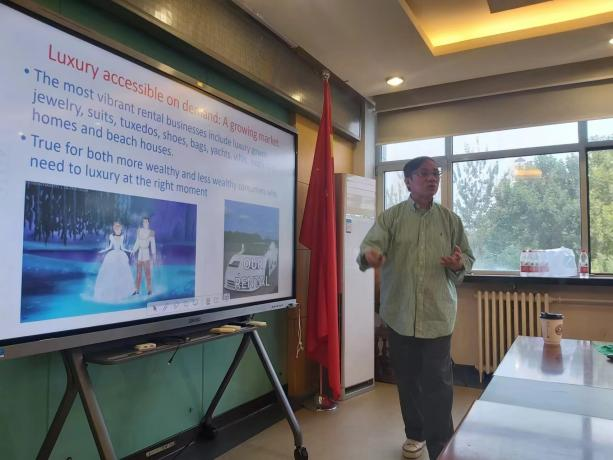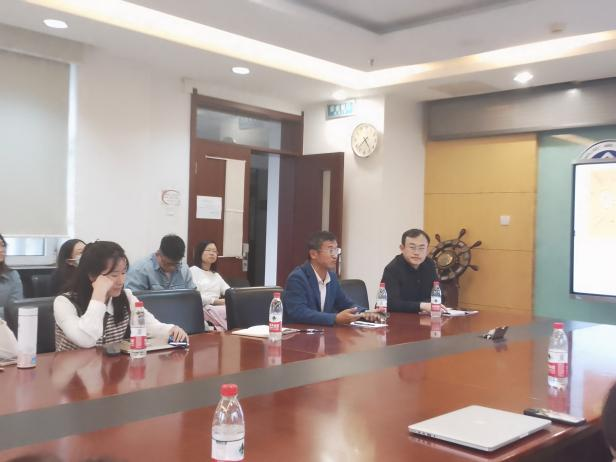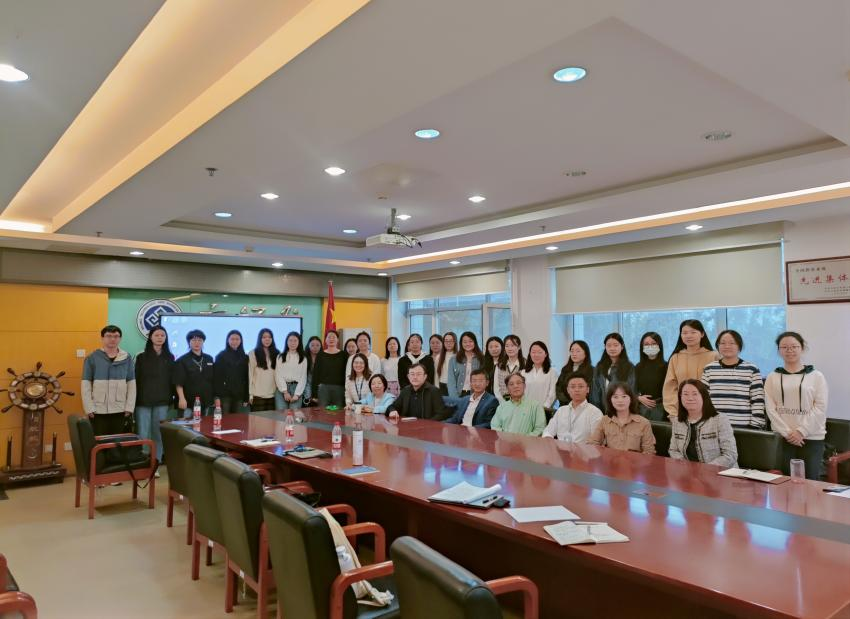On the afternoon of October 17, 2023, Professor Wang Chenglu from the University of New Haven Business School delivered a lecture titled "Profiling Transumers: The Impact of Mindsets on Rentership vs. Ownership Consumption." This event was hosted by Liu Yong, Director of the Marketing Department. Faculty members and graduate students in business management attended this engaging lecture. Director Liu welcomed Professor Wang warmly and briefly highlighted his academic achievements.
Professor Chenglu Wang is a tenured marketing professor at the University of New Haven Business School and a Fulbright Scholar. He has published over 100 articles in prestigious journals like the Journal of Consumer Psychology and Journal of Business Ethics, focusing on consumer behavior and interactive marketing strategies. Stanford University's database ranks him among the top 2% most cited researchers globally. He currently serves as editor-in-chief for the Journal of Research in Interactive Marketing (Impact Factor: 8.2) and holds editorial roles in other prominent SSCI journals; he also co-chairs various international marketing conferences.
In his lecture, Professor Wang examined psychological mechanisms behind rentership versus ownership consumption patterns, providing new insights into consumer behavior studies. He noted that rental models not only expand market access but also align with sustainable development principles. For consumers, leasing represents an innovative lifestyle focused on short-term experiences rather than long-term ownership. Additionally, he applied concepts from psychology—Fixed Mindsets and Growth Mindsets—to explore their influence on consumption choices while introducing Psychological Connectedness as a mediating variable affecting consumer behavior dynamics. Differentiating between renting and owning led him to present consumption type as a moderating variable; robustness tests were conducted through rigorous experiments. In conclusion, Professor Wang emphasized understanding consumer behavior from their perspective—a viewpoint that goes beyond traditional sharing economy studies while highlighting trends related to instant gratification experiences. He pointed out significant managerial implications for retail businesses regarding advertising strategies tailored to diverse consumer types.




Afterward, faculty members and students actively engaged with questions that enriched discussions about frontier research topics—fostering greater interest in cutting-edge developments within international marketing practices. Associate Professor Liu Yong summarized key points from the lecture again expressing gratitude towards Professor Wang for delivering such an exceptional report at Business School Beijing Technology and Business University; both faculty members and students are expected to benefit significantly from this experience moving forward. Director Liu remarked how this exchange initiative heightened awareness among faculty and students about advancements in international marketing while facilitating digital transformation efforts within our department. The Marketing Department plans ongoing invitations to renowned scholars domestically/internationally for high-caliber lectures/exchanges aimed at propelling growth across our college's new business initiatives.


